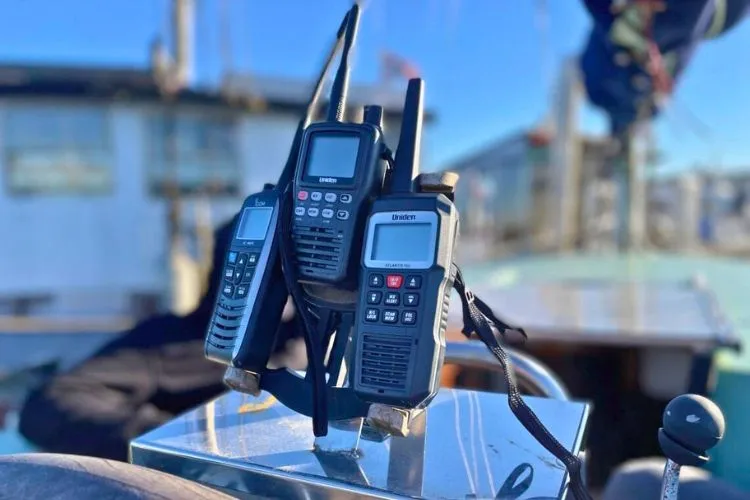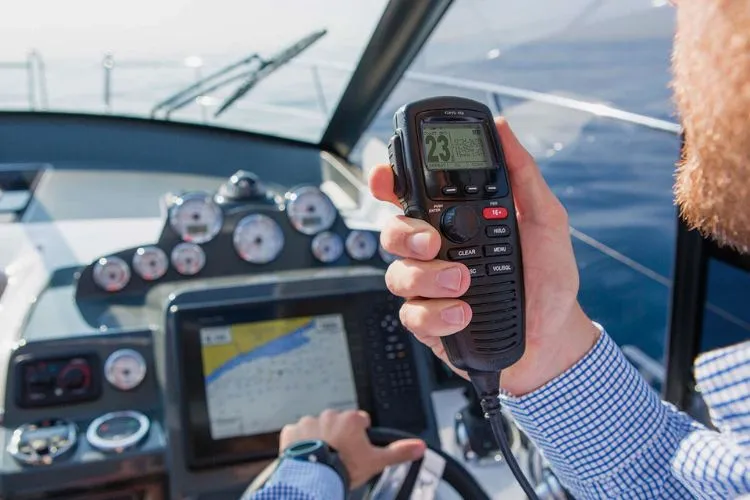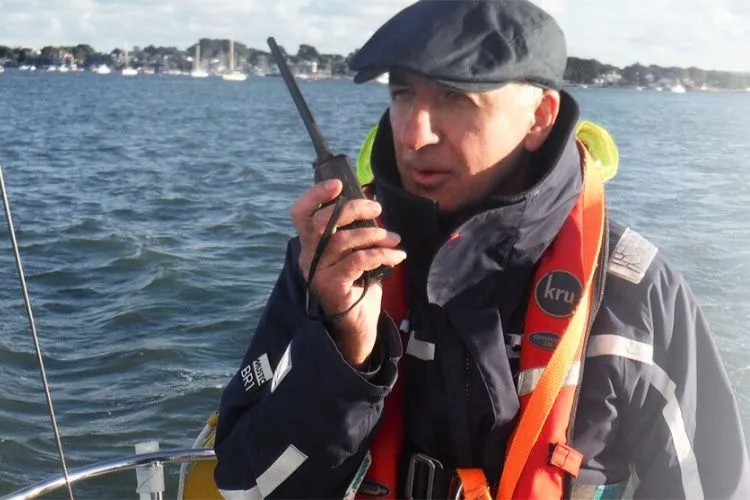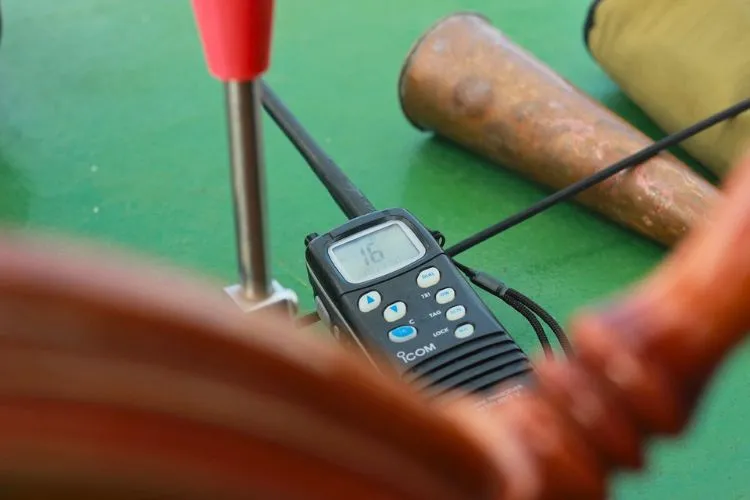Navigating the realm of Very High Frequency (VHF) communication comes with its own set of rules and regulations.
Essential for clear, short-distance dialogue, especially among maritime and aviation sectors, the use of VHF ensures crucial lines of communication are kept open and interference-free.
But, can you transmit on VHF without a license?
Well, this specific question is surrounded by various legal considerations.
As we delve into the regulatory landscape governing VHF usage, it becomes clear that understanding and adhering to these rules is not only a legal obligation but a pivotal aspect of ensuring safety and efficiency in communication.

Understanding VHF Licensing
What is a VHF License?
A VHF license acts as a gatekeeper, managing who can legally operate on the Very High Frequency (VHF) spectrum.
This range is key for clear, short-distance communication and is favored by people at sea, in the air, and in many emergency services.
To keep these lines clear and usable, licensing is vital. Regulatory bodies across the world, such as the Federal Communications Commission (FCC) in the United States, issue these licenses.
They set guidelines that users must follow to avoid signal interference and maintain orderly communication channels.

Why is Licensing Required?
The need for licensing becomes clear when you consider the chaos of a free-for-all frequency space. Licenses ensure only authorized users access certain frequencies.
From a safety standpoint, imagine a distressed ship’s call getting drowned out by numerous unregulated signals. Licensing also limits the chances of this happening.
It’s not just about order; these laws carry penalties for those who break them, ranging from fines to criminal charges, depending on your country’s regulations.
Can You Transmit on VHF Without a License?
Specific Use Cases
While most VHF transmission requires a license, there is room for exceptions. In great peril, such as when lives are at stake, the rules become more lenient. If a boat is sinking or an aircraft is in distress, even an unlicensed person may use the VHF radio to call for help.
The maritime world pays special attention to such scenarios, carving out these exceptions to prioritize safety above all else.
In amateur radio, however, hobbyists are largely expected to operate within assigned frequency bands that do not require a license.
Penalties for Illegal Transmission
Flouting these laws is no small matter. Authorities take illegal VHF transmission seriously. Fines can reach up to tens of thousands of dollars, and repeat offenses could lead to imprisonment.
Tales of hefty fines and law enforcement raids on illegal broadcasters serve as stark reminders of the legal force behind these seemingly benign regulations.
How to Obtain a VHF License?
Eligibility and Application Process
Interested in getting licensed? You’ll typically need to prove your identity, and in some cases, your technical knowledge.
An application form from the appropriate regulatory body is the first step. Some regions require an exam, proof of which must accompany your application.
The cost varies by country, but generally, there’s a fee for the processing and issuance of a VHF license.

Maintaining Your License
Like a vehicle, a VHF license requires upkeep. Keep an eye on expiration dates and any changes in regulation.
As technology and legal frameworks evolve, the rules regarding frequency use may also shift. Staying informed and renewing your license on time are part of the holder’s responsibilities.
Best Practices for VHF Transmission
Legal Compliance
It cannot be overstressed—always stay within legal boundaries when using VHF radio. This means knowing your allowed frequencies and adhering to stipulated power limits.
Legalities aside, this discipline also ensures that the channels remain open and clear for those who need them most.

Operational Tips
Communication via VHF radio may seem straightforward, but it adheres to its own set of protocols. Above all, brevity and clarity rule.
Whether you’re a seasoned operator or new to the VHF scene, keeping transmissions succinct aids in overall efficiency, and could be critical in emergency scenarios.
Pro Tips
For those committed to proper VHF use, it pays to stay connected with entities that govern these communication lines. This can help you stay in the know and operate your equipment within the bounds of the law.
Engaging with local amateur radio clubs or maritime organizations provides hands-on knowledge and camaraderie with fellow enthusiasts.
And consider a VHF operation course—it’s an investment in safe and effective communication that benefits everyone on the frequency.
Frequently Asked Questions (FAQs)
Can I use a VHF radio for personal communication without a license?
Not usually. Personal communication, if done on regulated VHF frequencies, will typically mandate a license. It’s best to check with local authorities for any exemptions.
What are the exemptions to the licensing requirement for VHF transmission?
Most exceptions relate to emergencies where safety is a concern. In these cases, an unlicensed individual may use VHF to seek help.
How long does it take to get a VHF license?
The processing time can vary widely depending on the country and the complexity of the application. It’s wise to apply well in advance of when you plan to use the equipment.
Can tourists or travelers use VHF radios in foreign waters or airspace without a local license?
Licensing requirements are jurisdiction-specific. Travelers should secure the appropriate permits from their host country before using VHF radios.
What should I do if I accidentally transmit on a licensed frequency without authorization?
Immediately cease transmission. If possible, notify the proper authorities about the mistake to avoid potential misunderstandings or penalties.
Conclusion:
In an age of seemingly boundless communication methods, VHF radio holds its own due to its reliability and clarity. Despite this, one must never forget the importance of following the rules that govern its use.
Failing to do so could lead not just to legal trouble but could endanger lives in at-risk situations such as maritime or aviation emergencies.
For these reasons, obtaining a license and using VHF responsibly is not just a legal requirement but a moral obligation for those who take to the sea, the sky, or simply want to engage in a storied communication tradition.


